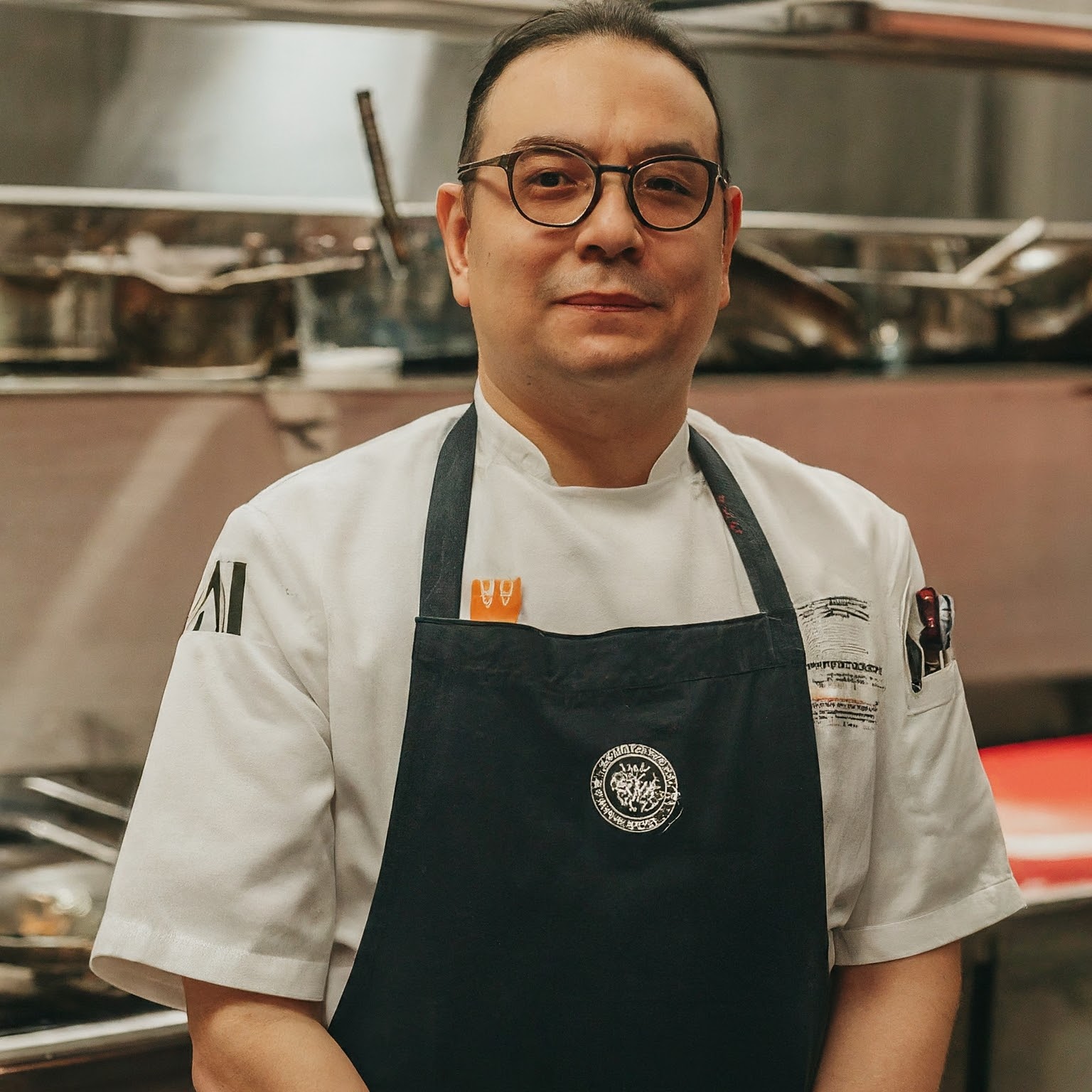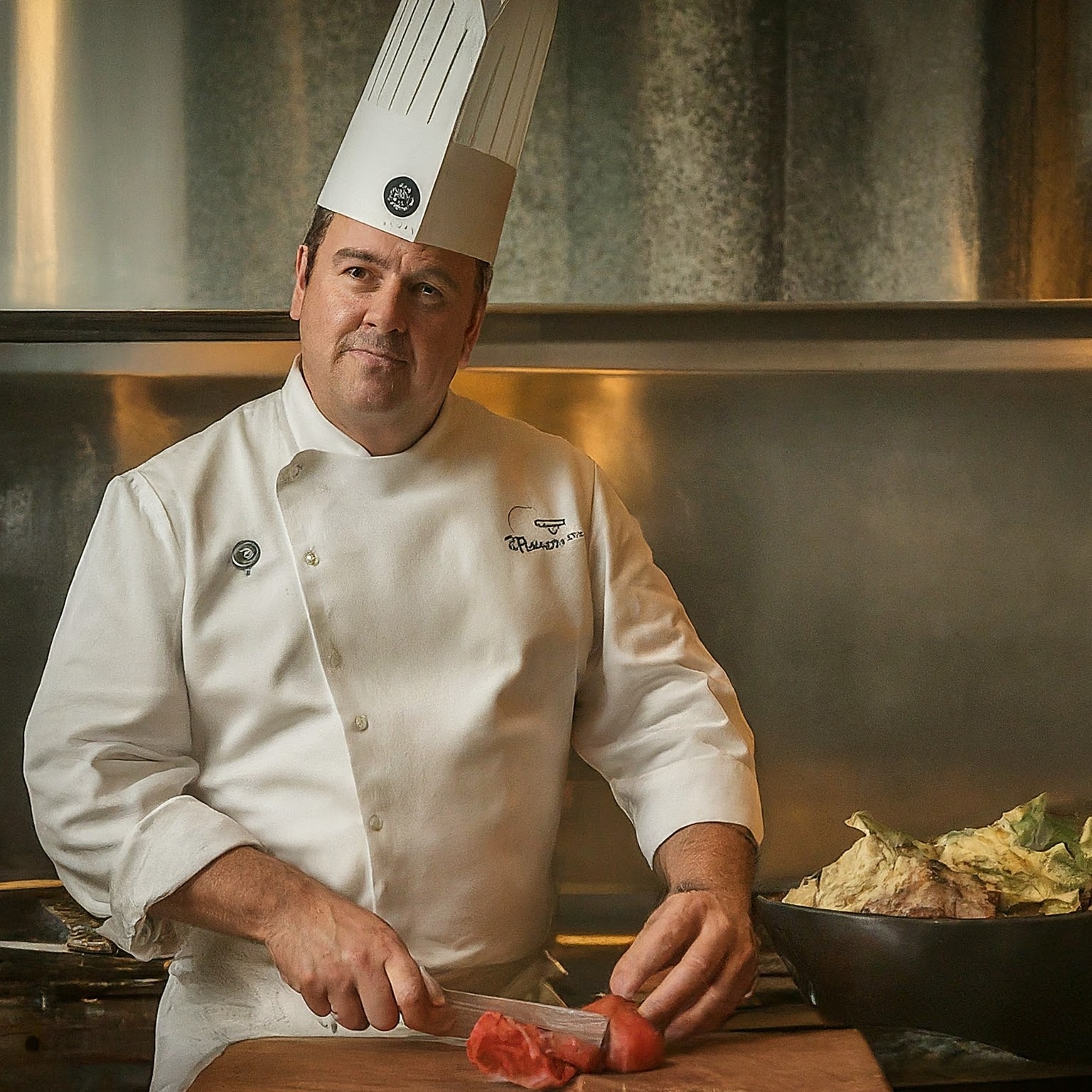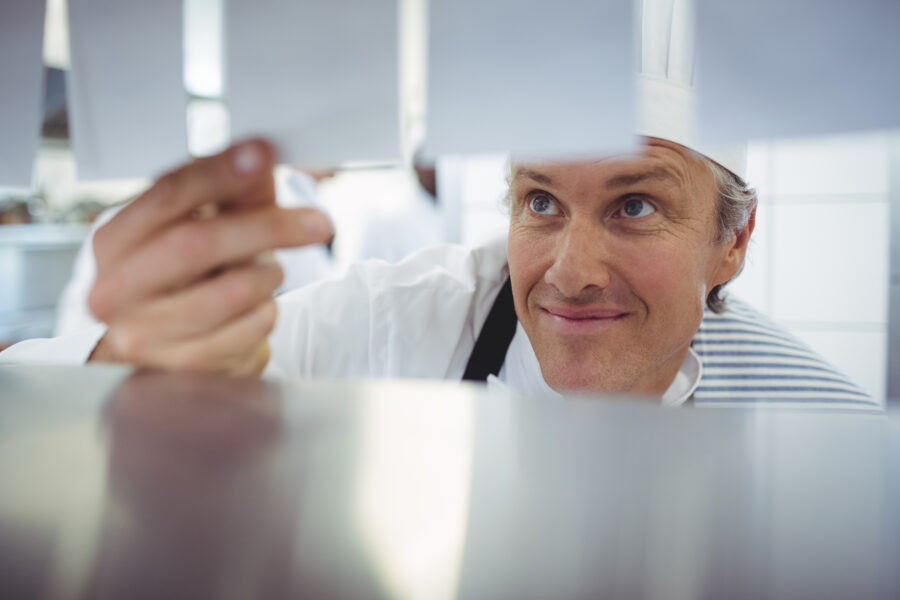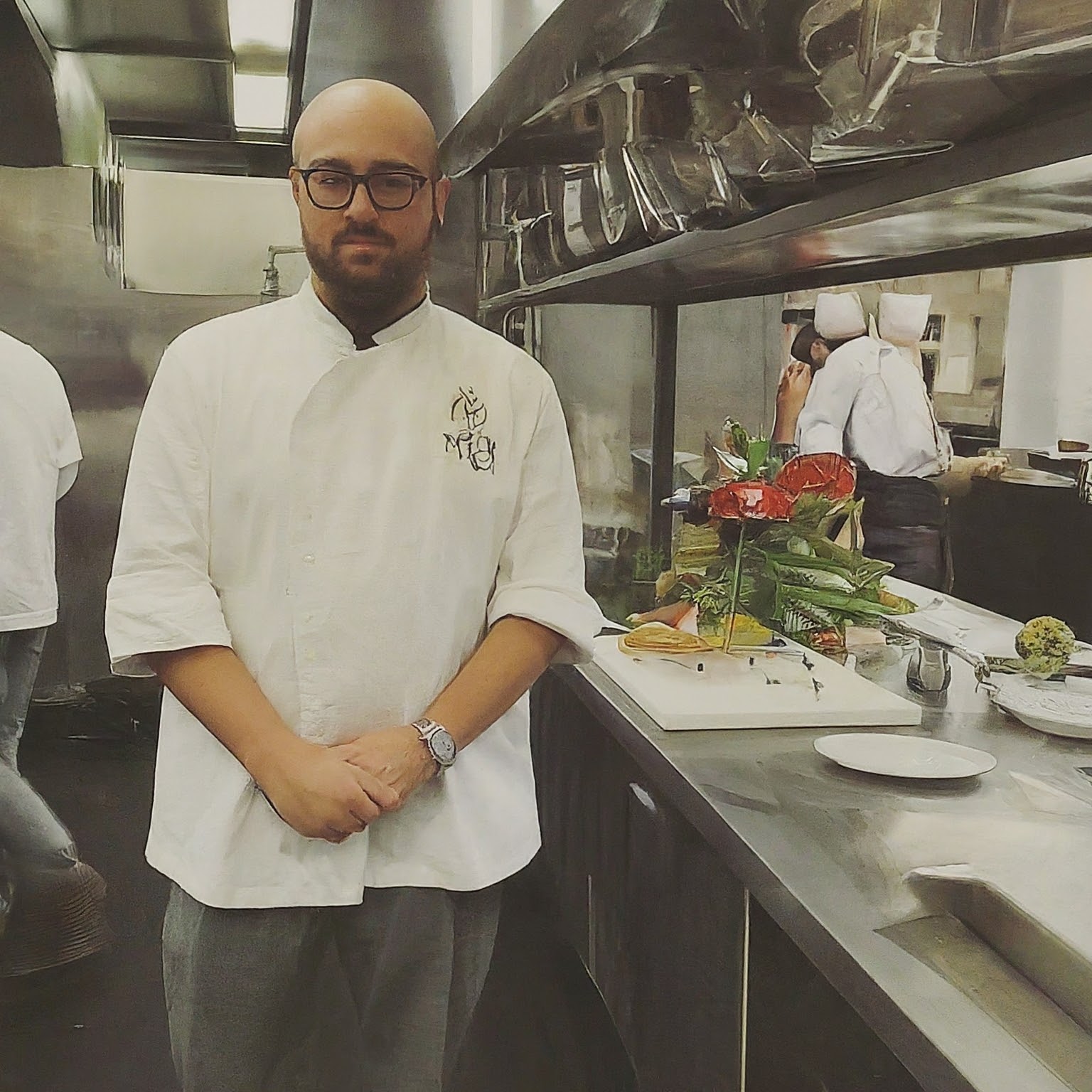
An executive chef
An executive chef’s day is a whirlwind of activity, balancing the art of cooking with the science of management.
From the early morning hours to late at night, they ensure that every dish meets high standards and that the kitchen operates smoothly.
Let’s take a closer look at a typical day in the life of an executive chef.
Early Morning: Planning and Preparation
5:00 AM – 6:00 AM: Early Start The day begins early for an executive chef. Arriving at the restaurant before anyone else, the first task is to review the day’s schedule.
This includes checking reservations, planning for special events, and assessing inventory levels. The chef will also review any notes from the previous day, such as customer feedback or any issues that arose.
6:00 AM – 8:00 AM: Inventory and Ordering Next, the chef conducts a thorough inventory check. This involves inspecting the quality of ingredients and ensuring that there’s enough stock for the day.
Any items that are running low are noted, and orders are placed with suppliers. Building strong relationships with suppliers is crucial for ensuring the timely delivery of high-quality ingredients.
Morning: Team Briefing and Menu Planning
8:00 AM – 9:00 AM: Team Briefing The kitchen staff starts arriving, and it’s time for the daily briefing. The executive chef gathers the team to discuss the day’s menu, special requests, and any events.
This is also a time to address any concerns, set goals, and motivate the team. Clear communication is essential to ensure everyone is on the same page and ready to deliver their best performance.
9:00 AM – 11:00 AM: Menu Planning and Development With the team briefed, the chef focuses on menu planning and development.
This involves brainstorming new dishes, experimenting with flavors, and perfecting recipes. Creativity and innovation are key here, as the chef aims to create dishes that will delight customers and keep the menu fresh and exciting.
Midday: Lunch Service
11:00 AM – 2:00 PM: Lunch Service As lunch service approaches, the kitchen becomes a hive of activity. The executive chef oversees the preparation and plating of dishes, ensuring each one meets the restaurant’s standards.
During service, the chef manages the kitchen, coordinates with front-of-house staff, and may step in to assist with cooking during busy periods. Efficiency, precision, and the ability to handle pressure are critical during this time.
Afternoon: Administrative Tasks and Training
2:00 PM – 4:00 PM: Administrative Tasks After lunch service, the chef has a brief window to tackle administrative tasks.
This includes reviewing financial reports, managing budgets, and handling staff schedules. The chef may also meet with the restaurant owner or managers to discuss business strategies and plans.
Strong organizational and financial management skills are essential for this part of the job.
4:00 PM – 5:00 PM: Staff Training and Development Investing in staff training is a priority for any executive chef. During this time, the chef conducts training sessions, teaching new cooking techniques, safety protocols, and menu items.
Developing the skills of the team ensures consistent quality and prepares them for greater responsibilities.
Evening: Dinner Service
5:00 PM – 10:00 PM: Dinner Service Dinner service is often the busiest time of the day. The chef leads the kitchen through the dinner rush, maintaining high standards and ensuring timely service.
Coordination, multitasking, and attention to detail are crucial. The chef must also handle any issues that arise, from equipment malfunctions to customer complaints, with calm and effective problem-solving.
Late Night: Closing and Reflection
10:00 PM – 11:00 PM: Closing the Kitchen After the dinner service, it’s time to close the kitchen. The chef oversees the cleaning and organization of the kitchen, ensuring everything is for the next day.
Equipment is cleaned, inventory is checked, and any necessary notes are made.
11:00 PM – 12:00 AM: Reflection and Planning Finally, the chef takes some time to reflect on the day.
This involves reviewing what went well, what could be improved, and planning for the next day. Continuous improvement is a key mindset for any successful executive chef.
Skills and Qualities of an Executive Chef
To manage such a demanding schedule, an executive chef must possess a unique blend of skills and qualities:
- Leadership: The ability to lead and inspire a team is crucial.
- Culinary Expertise: A deep understanding of cooking techniques, flavors, and ingredients.
- Time Management: Efficiently managing time to balance multiple tasks and responsibilities.
- Creativity: Continuously innovating and creating new dishes.
- Stress Management: Remaining calm and effective under pressure.
- Communication: Clear communication with staff, suppliers, and management.
FAQs: Inside the Kitchen – A Day in the Life of an Executive Chef
1. What time does an executive chef typically start their day?
An executive chef often starts their day very early, usually around 5:00 AM to 6:00 AM. This early start allows them to review schedules, assess inventory, and prepare for the day ahead.
2. What are the primary responsibilities of an executive chef?
An executive chef oversees all kitchen operations, including menu planning, inventory management, team management, food preparation, and ensuring quality control. They also handle administrative tasks such as budgeting and scheduling.
3. What kind of education and training is required to become an executive chef?
Most executive chefs have formal training in culinary arts, often through culinary schools or vocational programs.
Additionally, hands-on experience in various kitchen roles, such as line cook and sous chef, is crucial.
Advanced culinary skills, leadership training, and professional certifications can further enhance their qualifications.
4. How important is hands-on experience for an aspiring executive chef?
Hands-on experience is vital. It allows chefs to develop practical skills, understand kitchen dynamics, and learn to handle the pressures of a busy kitchen.
Working in various roles within a kitchen helps build the necessary experience to manage and lead a team effectively.
5. What are the key skills an executive chef must possess?
Key skills include leadership, culinary expertise, time management, creativity, stress management, and effective communication.
An executive chef must be able to lead a team, innovate with new dishes, manage their time efficiently, and handle high-pressure situations calmly.
6. How does an executive chef stay updated with industry trends?
Executive chefs stay updated by reading culinary magazines, attending industry events, participating in professional organizations, and continuously experimenting with new recipes and techniques. Lifelong learning and adaptation are crucial in the ever-evolving culinary industry.
7. What is the role of an executive chef during service times?
During service times, the executive chef oversees the kitchen operations, ensuring dishes are prepared and plated to standard. They coordinate with the front-of-house staff, manage the kitchen team, and may step in to assist with cooking during peak times. Their role is crucial in maintaining quality and efficiency.
8. What does an executive chef do after the kitchen closes?
After the kitchen closes, the executive chef supervises the cleaning and organization of the kitchen. They review inventory, make necessary notes, and reflect on the day’s performance. This time is also used for planning and preparing for the next day.
9. How does an executive chef handle customer complaints or issues during service?
An executive chef addresses customer complaints by listening carefully, addressing the issue promptly, and ensuring the customer feels heard and valued. They work to resolve the problem efficiently, whether it involves adjusting a dish or offering a complimentary item.
10. What are the career advancement opportunities for an executive chef?
Career advancement opportunities include becoming a head chef at a larger or more prestigious restaurant, opening their own restaurant, or moving into roles such as a culinary director or consultant. Continuous professional development and networking play significant roles in career advancement.
11. What is the most challenging aspect of being an executive chef?
The most challenging aspect is balancing the multiple responsibilities that come with the role. This includes managing a team, maintaining high culinary standards, handling administrative tasks, and ensuring customer satisfaction, all while working long and often stressful hours.
12. How does an executive chef inspire and motivate their team?
An executive chef inspires and motivates their team by leading by example, providing continuous training and development opportunities, fostering a positive and collaborative work environment, and recognizing and rewarding hard work and creativity.
13. Why is inventory management important for an executive chef?
Inventory management is crucial to ensure that the kitchen is well-stocked with fresh ingredients, avoid waste, and control costs. It helps in maintaining the quality of dishes and ensuring smooth kitchen operations.
14. Can an executive chef’s role vary depending on the type of restaurant?
Yes, an executive chef’s role can vary depending on the restaurant’s size, style, and cuisine. In smaller establishments, they might be more hands-on with cooking, while in larger restaurants, their focus might be more on management and oversight.
15. What personal qualities are essential for success as an executive chef?
Personal qualities essential for success include passion for cooking, dedication, resilience, attention to detail, creativity, and the ability to handle stress and pressure. Strong interpersonal skills are also important for managing and leading a diverse team.
4o
Conclusion
A day in the life of an executive chef is dynamic and challenging, requiring a combination of culinary skill, leadership, and business acumen. From early morning planning to late-night reflection, the chef’s role is integral to the success of the kitchen and the satisfaction of its customers. For those with a passion for food and a drive for excellence, the journey of an executive chef offers a rewarding and fulfilling career.
4o





